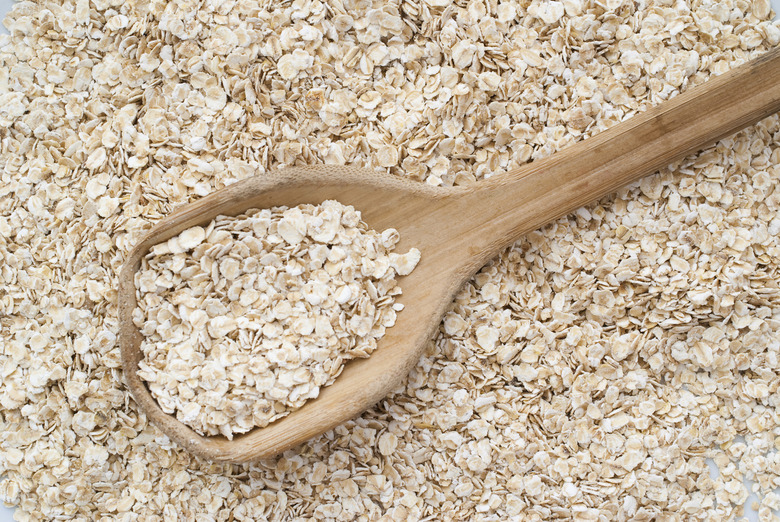Home Remedies For Dog Diarrhea & Vomiting
Bouts of diarrhea or vomiting may indicate that your dog's digestive system is upset. Fortunately, there are home remedies that can help rest and restore the digestive system so your dog can return to chasing balls in no time. The home remedies include taking away food for 12 to 24 hours, slowly introducing bland foods, and using probiotics and other supplements. You should, however, always consult your veterinarian before beginning use of any home remedies.
Food Fasting
Food Fasting
According to Dr. Robert J. Silver, a holistic veterinarian with a private practice in Boulder, Colorado, fasting gives your dog's gastrointestinal tract time to rest and get over whatever caused the upset. Most veterinarians recommend that a dog not be fed for 12 to 24 hours. Make sure to provide plenty of water to keep your dog hydrated. Contact your veterinarian if your dog can't keep water down.
Bland Foods
Bland Foods
After a food fast, introducing bland foods is the best way to give your dog the nutrients and calories needed to regain stregth. Because they are easy to digest, bland foods are gentle on the gastrointestinal tract. Veterinarian David McCluggage of Chaparral Animal Health Center in Longmont, Colorado says that a bland food diet should contain a ratio of 1/3 meat and 2/3 rice or other bland grain. Cooked and diced chicken or boiled ground beef are good choices. Rice should be traditional white rice, not "minute rice" or brown rice, which has too much fiber.
More Bland Foods
More Bland Foods
Not all veterinarians recommend the same foods. Some other commonly used ingredients are turkey, baby foods, oatmeal, cottage cheese and either pumpkin or sweet potato. Make sure you consult your veterinarian so you will know what the best ingredients and combinations are for your dog.
Feeding Recommendations
Feeding Recommendations
When it is time to introduce bland foods, veterinarians recommend feeding your dog about half the quantity of his regular food portions. These smaller portions should be given to the dog about two to three times a day. After approximately 72 hours, your dog's stools should return to normal, and his regular diet can be resumed. Be sure to contact your veterinarian if this is not the case.
Adding Probiotics
Adding Probiotics
Probiotics are good bacteria because they are crucial to proper digestion, and aid in converting food into nutrients. The naturally occurring good and bad bacteria in the stomach become out of balance when a dog has diarrhea. Because of this, it is a good idea to add a probiotic supplement to help your dog recover more quickly. Probiotics are found in yogurt, which you can give your dog, but a powdered high-potency probiotic supplement is more effective. Veterinarians stock these powders and will recommend the proper dosage.
Additional Supplements
Additional Supplements
There are several other supplements that have been useful for healing the intestinal lining and intestinal cells including L-glutamine, deglycyrrhizinated licorice, slippery elm and N-acetylglucosamine. Consult your veterinarian to see if any of these would benefit your dog.
Take Caution
Take Caution
Diarrhea and vomiting in dogs can be caused by many different things other than a gastrointestinal upset. See your veterinarian immediately if you notice blood in your dog's stool or vomit, dry heaves and excessive shaking or panting.
Always check with your veterinarian before changing your pet's diet, medication, or physical activity routines. This information is not a substitute for a vet's opinion.
References
- The Bark: Vet Advice: Treating Your Dog's Diarrhea
- WellVet.com: Diarrhea; Treating Acute Diarrhea and Chronic Diarrhea in Dogs
- Healthy Pets with Karen Becker: What to Do When Your Dog Gets Diarrhea
- Holistic Pet Info.com: Digestive Problems in Cats and Dogs
- WebMD.com: Pets: Diarrhea in Dogs: Causes and Treatment
- Bethlehem Veterinary Hospital: Caring for the Vomiting Dog at Home
